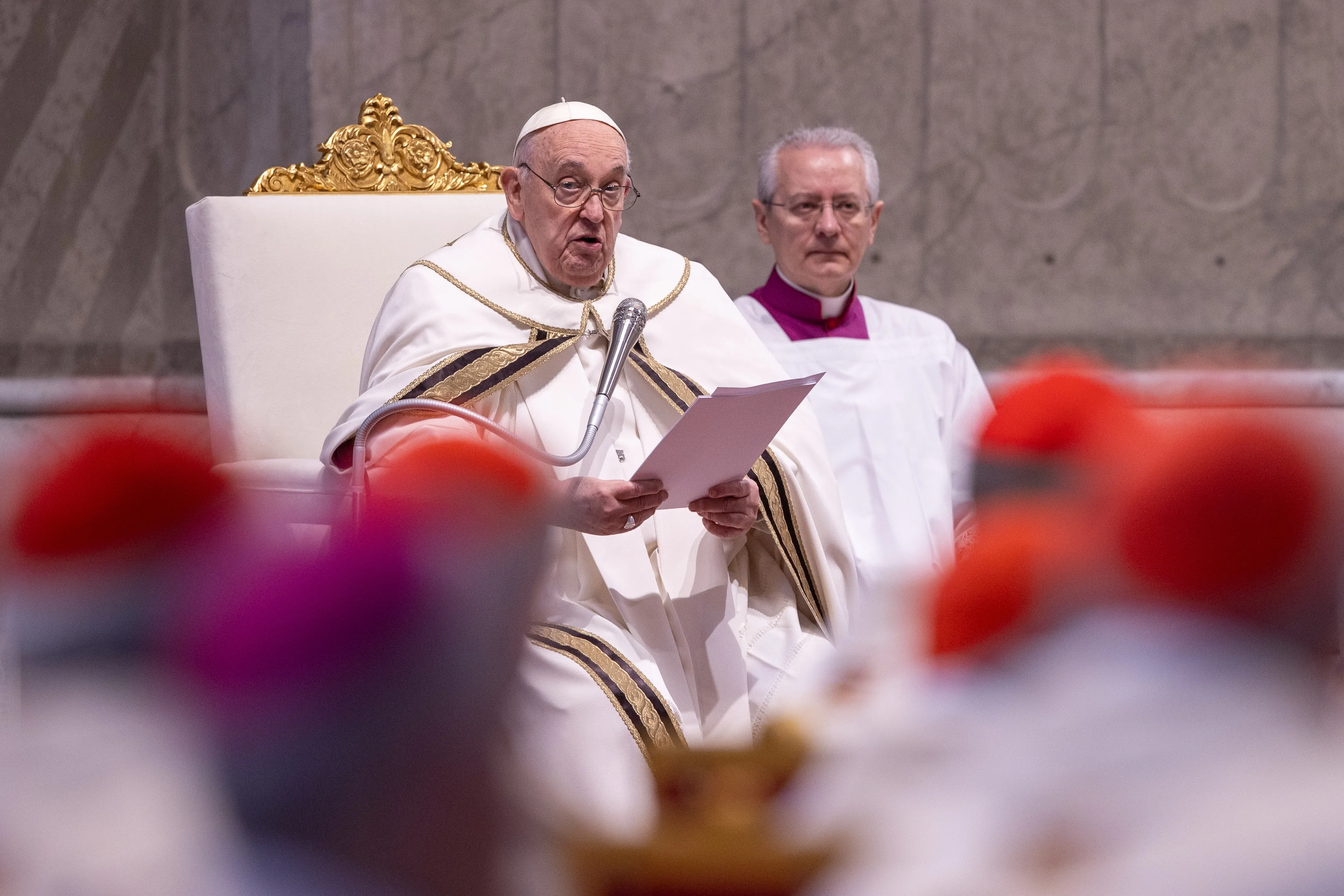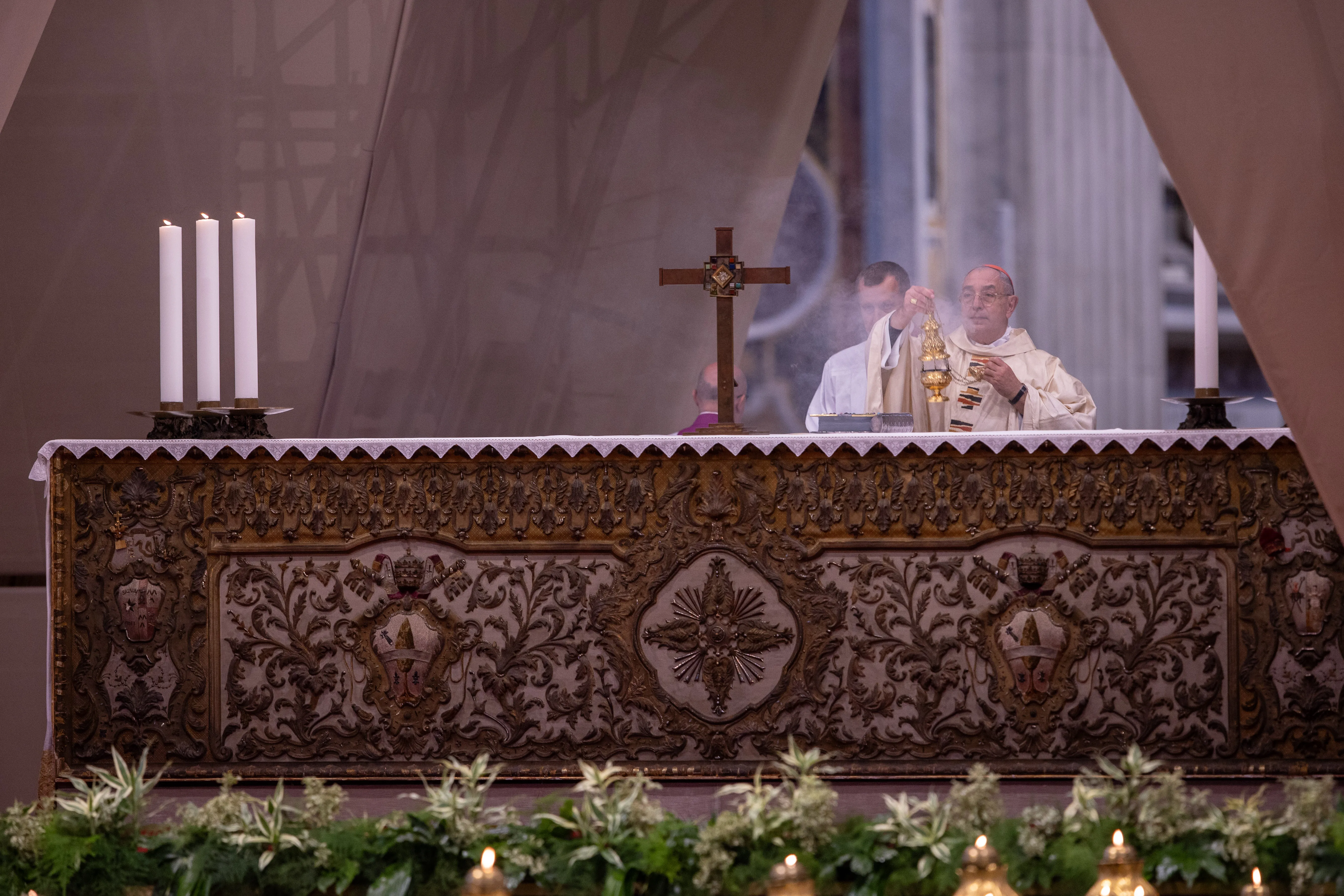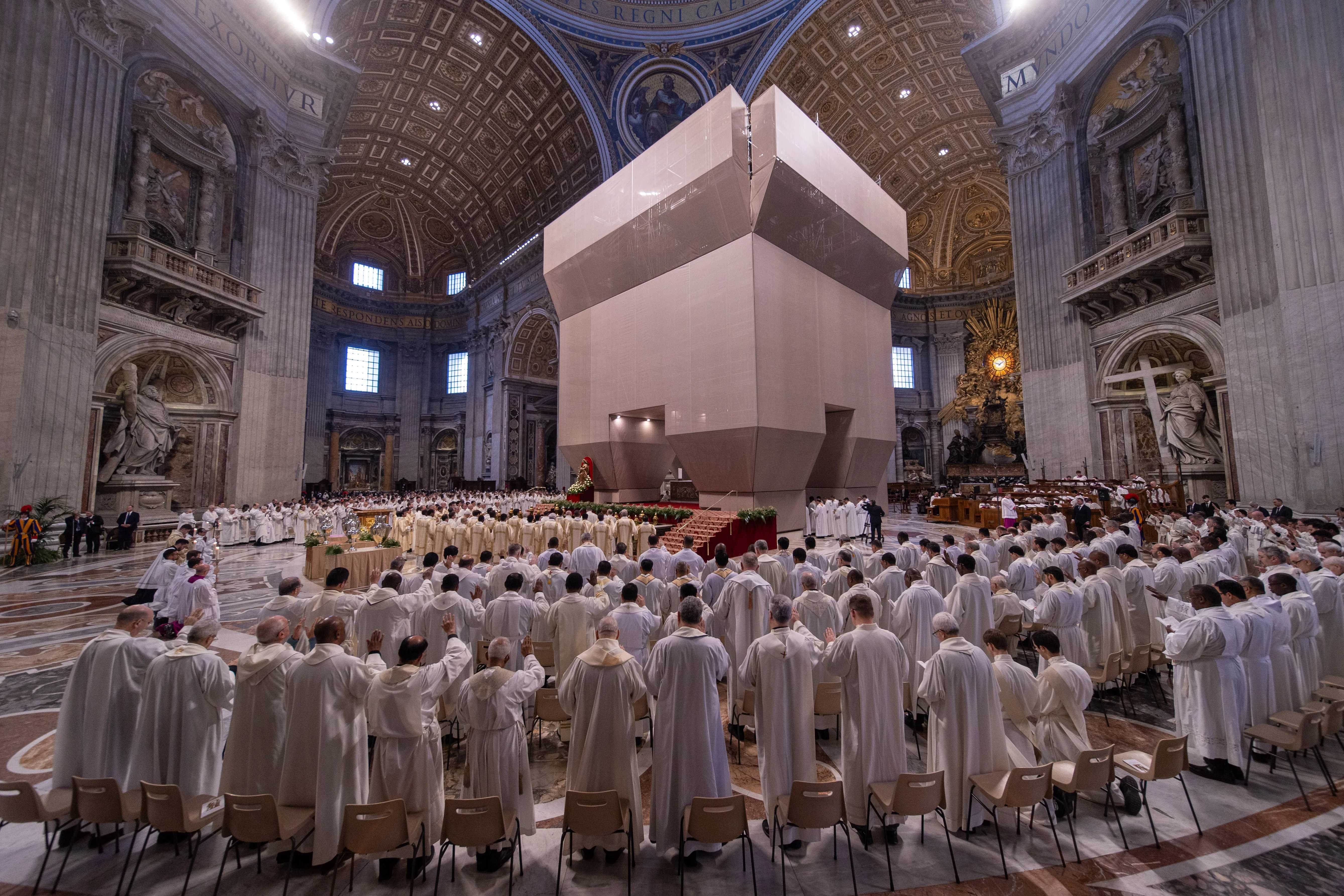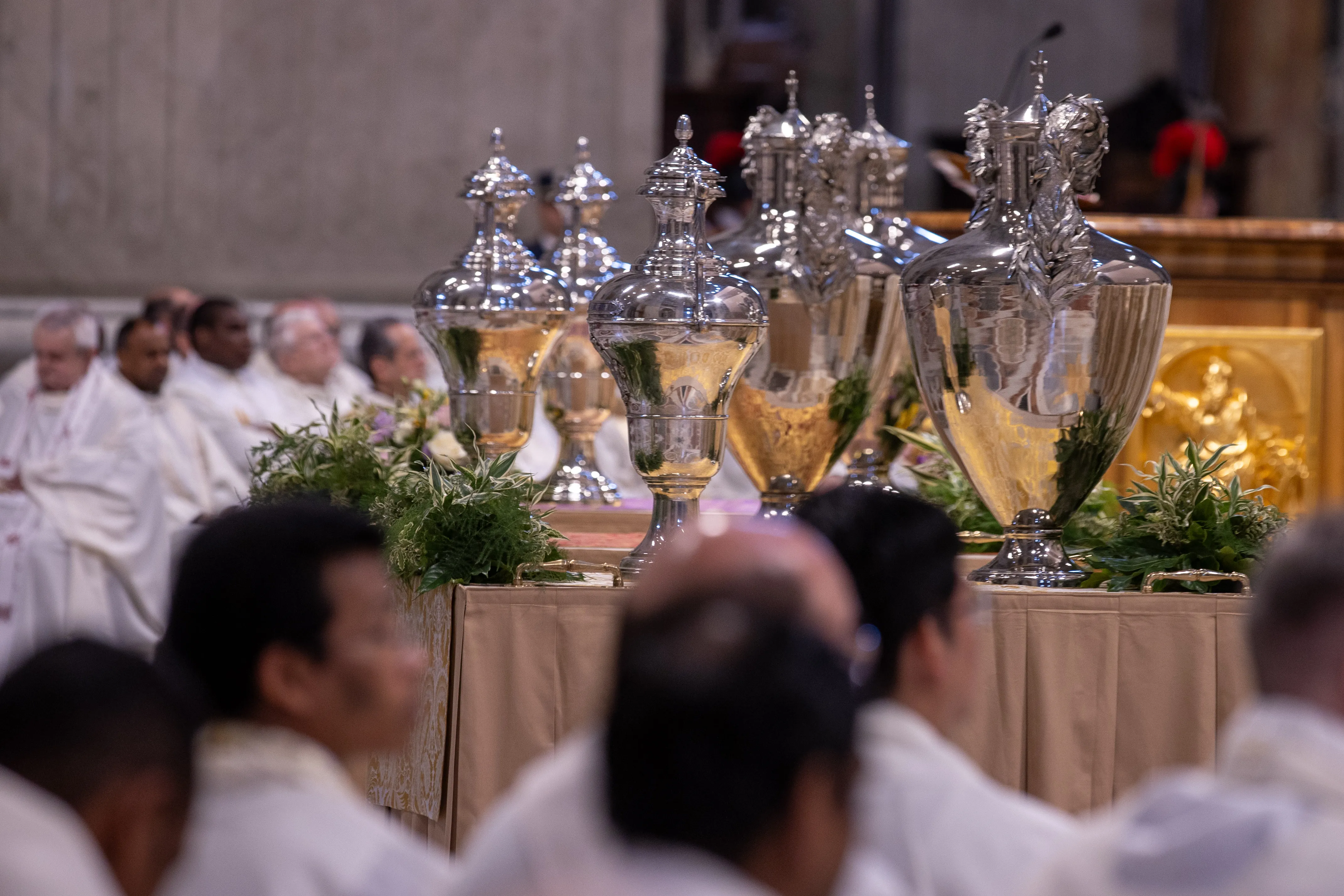
Denver Newsroom, Dec 1, 2021 / 14:32 pm (CNA).
Catholic leaders offered statements and prayers leading up to and following the oral arguments in the case Dobbs v. Jackson Women’s Health Organization, which concerns a Mississippi law banning abortion after 15 weeks.
The arguments in favor of the law, heard before the Supreme Court earlier today, directly challenge Roe v. Wade, the 1973 ruling that legalized abortion nationwide.
“In the United States, abortion takes the lives of over 600,000 babies every year. Dobbs v. Jackson Women’s Health could change that,” shared Archbishop William Lori of Baltimore in a statement.
Lori, who is the chairman of the USCCB Committee on Pro-Life Activities, prayed for the Supreme Court to “do the right thing and allow states to once again limit or prohibit abortion.” In doing so, he said, the ruling would “protect millions of unborn children and their mothers from this painful, life-destroying act.”
“We invite all people of good will to uphold the dignity of human life by joining us in prayer and fasting for this important case,” he said.
Bishop Earl Boyea of Lansing launched a day of prayer and fasting in his diocese while the Supreme Court hears oral arguments. The day includes Eucharistic Adoration, the recitation of the rosary, Mass, and a Chaplet of Divine Mercy at Saint Mary Cathedral in Lansing.
“The campaign to abolish abortion is, at root, a spiritual battle between a civilization of love and a culture of death,” said Jenny Ingles, director of fertility and life ministries for the Diocese of Lansing, in a statement. “Hence we need to employ spiritual means in order to finally prevail and win victory for the unborn, their mothers, fathers, families and the common good of all in the United States.”
According to the statement, Bishop Boyea issued a letter to all priests in the diocese to consider adopting a similar schedule for their parishes.
Other clerics shared their support and asked for prayers on social media platforms.
“Please pray for the Supreme Court and for these women who need our love and support,” said Archbishop Salvatore Cordileone of San Francisco on Twitter.
Cordileone has been vocal about the right to life of the unborn, calling on the faithful to pray for congresswoman Nancy Pelosi, a Catholic from his diocese who supports abortion.
Bishop Thomas Tobin of Providence also asked for prayers on his Twitter account.
“This is a defining moment for our nation,” he said in a Tweet. “Will we continue to destroy innocent unborn children and exploit very vulnerable women, or will we promote an authentic culture of life?”
Father Dan Beeman, a priest in the Diocese of Richmond, asked for the Supreme Court to “do the right thing and respect every human life” on his Twitter account, invoking the help of the Virgin Mary.
Father Steve Pullis, director of evangelization, catechesis, and schools for the Archdiocese of Detroit, stated “End Roe; End Casey. Build a Culture of Life,” on his Twitter account.
On Nov. 18, the USCCB held an ecumenical prayer event to rally the pro-life faithful before the Dobbs oral arguments. The event featured prominent pro-life speakers, including Archbishop Joseph Naumann of Kansas City in Kansas.
“Our nation stands guilty of not only promoting, endorsing, and enshrining abortion across the land, but we are responsible for exporting abortion throughout the world in a sinister form of colonial imperialism,” said Naumann during the national event.
Naumann, who was the chair of the USCCB’s pro-life committee prior to the election of Archbishop Lori to the position in 2020, said the faithful need to “pray, fast, and work harder to end this pandemic of child sacrifice.”
Legal experts say the Dobbs v. Jackson case presents an ideal opportunity for the Supreme Court to reconsider previous rulings that upheld legal abortion nationwide. Decisions in high profile cases such as Dobbs tend to come at the end of the Supreme Court’s current term, which could be in late June or early July of 2022.
If you value the news and views Catholic World Report provides, please consider donating to support our efforts. Your contribution will help us continue to make CWR available to all readers worldwide for free, without a subscription. Thank you for your generosity!
Click here for more information on donating to CWR. Click here to sign up for our newsletter.











The oral arguments in the Dobbs v. Jackson Women’s Health Organization case today made it clear that the lethal bigotry that victimizes babies today is as deeply entrenched as was the bigotry that victimized humans of African descent in the antebellum South.
Life on planet Earth is filled with burdens. We don’t get to kill our fellow human beings because we feel they have become burdensome to us, or enslave them in order to relieve ourselves of the burden of working.
Just as slavery seemed evil and irrational as soon as the bigotry that victimized African Americans was dispelled, so too is the “undue burden” argument we heard again and again today seen in all its evil irrationality by those not afflicted with the bigotry of our times. There is no right to kill an innocent human being in order to relieve ourselves of a burden anymore than there is a right to enslave a human being in order to relieve ourselves of one.
All we do and fail to do tends to either help dispel the lethal bigotry of our times, or tends to sustain and uphold it.
The Abolitionists acted like African Americans were children of God with an inalienable right to liberty. Explaining ourselves is important, but we too must act like babies with an inalienable right to life are routinely being murdered.
Yes. Doing so will cost us something. But to fail to do so might have an eternal cost. Whatever we failed to do for the least of His brethren, we failed to do for Him. Every Christian should read Matthew 25:31-46 regularly.
Anyone ask McElroy what he thinks?
Do American bishops even begin to realize how their credibility, let alone their authority, has been reduced very close to zero on abortion when for 50 years they have refused to excommunicate pseudo-Catholic politicians like Biden, Pelosi, Durbin, Cuomo, and scores more? Prayers and platitudes do not fill this void.
The sad and disturbing reaity is that they really don’t have any sense of this rather obvious truth. Some people are so deep in the darkness, they don’t know what light looks like anymore. That’s a dangerous place to be.
1) Life begins at conception. This is primarily a MEDICAL fact.
2) At the instant of conception that which is conceived is too small to be seen by the most powerful microscope available
BUT
It begins to grow
and
If it’s growing – it’s ALIVE
Ergo, to terminate the most helpless person imaginable – no matter what Joe or Nancy or anyone else says – is –
(Fill in the blanks)
So, American bishops are hoping our man-made government in Washington will end abortion in the USA. I would feel a lot better if American women stopped having abortions because they became members of our church.
Who — and what — is lost if the Mississippi law is upheld and Roe is overturned? Let’s look at that. The entire abortion issue was forced into the courts by the ‘pro-choice’ cabal that knew it would never pass muster in enough states to give them the national ‘victory’ they wanted. “Safe, legal and rare” was never more than a verbal fig leaf for them. So thanks to them, and Harry Blackmun, we now have 63-million murdered unborns hanging around the neck of a nation, most of whose people support only a limited version of abortion or oppose it altogether. If the SCOTUS does the right thing, the question will be handed back to the states where it has always belonged, perhaps half of which will ban abortion in whole or in part. Who actually gets hurt by such a ruling? The butchers who sell aborted baby parts for money, or cell lines to researchers will take a well-deserved hit. Certain politicians who use the issue to get money and votes will feel a temporary pinch along with — horrors! — some lawyers. Women who wish to end a pregnancy may have to travel somewhat further to a Planned nonParenthood clinic. Margaret Sanger’s creation will be thankfully deprived of millions of tax dollars, though not nearly as much as it should. We can also expect to eventually see shuttle vans with the organization’s logo driving women across state lines to end unwanted pregnancies. Herr Doktor Josef Mengele would be SO proud!